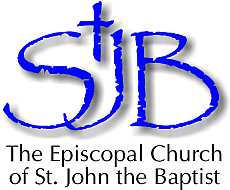We are always happy to answer questions. Here are a few common questions (and answers) to get started.
what is the episcopal church?
The Episcopal Church is part of the Anglican Communion, a worldwide fellowship of national churches with historic roots in England.
The history and heritage of the Episcopal Church are unique, but our roots are in the earliest days of Christianity. We are Catholic, holding to the faith and practice of the Apostles: the Creeds, the Sacraments of Baptism and Holy Eucharist, Holy Scripture and the threefold ordained ministries of deacons, priests and bishops who are in continual Apostolic succession from St. Peter to our present Bishop.
We are also Protestant, expressing many of the principles of the sixteenth century Reformation, when the Church of England declared itself a self-governing body within the Holy Catholic Church independent of the Papacy. These principles include: a renewed emphasis on Holy Scripture through systematic public reading, a desire for a personal relationship with Jesus as Lord and Savior, worship in the language of the people, and lay participation in church governance and leadership.
We are part of the Diocese of New Hampshire which encompasses fifty parishes in the state. Our diocesan headquarters and bishop reside in the NH capitol city of Concord.
Among the many resources on the Episcopal Church website is a brief explanation (with videos!) about core beliefs and our diversity. Click here: "I am an Episcopalian".
How long has st. john's been around?
We were founded in 1877 as a mission of the Diocese of New Hampshire. We were formally designated an independent parish in 1961. More on our history...
what should I expect at a worship service?
Most of our Sunday worship services are the Holy Eucharist: also known as Communion, the Lord’s Supper or Mass. As in all Episcopal churches, the liturgy (form of the service) is based on the Book of Common Prayer. Our Sunday service at 9:00 AM is accompanied by music - often a mix of contemporary and traditional.
If you attend on Zoom a special “Bulletin” is displayed on screen making it easy to follow the service online.
The service has two main components:
the Liturgy of the Word, focusing on the Bible, with readings, psalms and other forms of praise, prayers and a sermon
the Liturgy of the Table, in which we bless and share bread and wine at God's table.
All may; none must. ALL are welcome to join with the congregation throughout the service; ALL are invited to share in Communion. You may notice that people from different traditions or personal preferences may stand, sit or kneel at different times during the service. They may (or may not) bow their heads or bless themselves with the sign of the cross at different times during the service.
Many will come to the altar rail for Communion and kneel or stand holding their hands crossed over each other, palms up, to receive the bread. Some may take only bread. Some may drink from the chalice. Gluten-free bread is available.
Others may come to the altar for just a blessing and signal this at the rail by crossing their arms across their chest (in the shape of an X), palms toward shoulders.
We welcome the diversity of our community. As a guest - or a member - please know that that you are welcome and respected when you do what, and only what, feels comfortable and right to you.
Loving, Liberating and Life-Giving…
The Episcopal branch of the Jesus Movement


